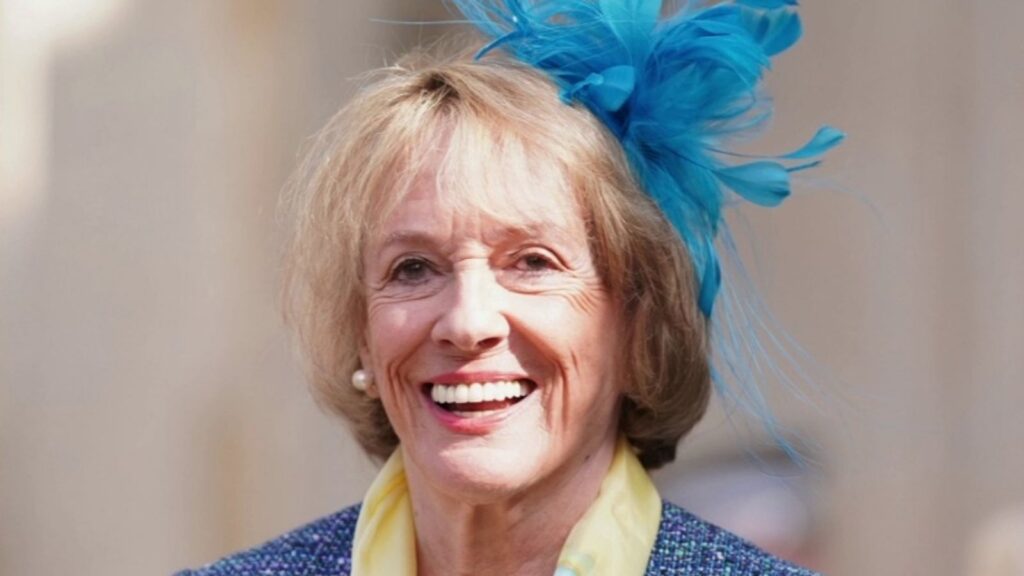
Terminally ill journalist Dame Esther Rantzen was branded “disrespectful” and “insulting” by MPs during a debate on the assisted dying bill.
The broadcaster and Childline founder wrote to all MPs ahead of Friday’s Commons’ debate urging them to vote for what she called a “crucial reform”.
MPs were voting on amendments made to the bill – the report stage – following months of a committee going line by line through it after being introduced last year by Labour MP Kim Leadbeater.
The bill says people with six months to live who have the mental capacity can request medical assistance to legally end their life.
Dame Esther, who has stage four lung cancer, suggested many MPs who opposed the bill have “undeclared personal religious beliefs which mean no precautions would satisfy them”.
However, in a highly charged Commons session, some MPs took umbrage with that.
Labour MP Florence Eshalomi, who is a Christian and voted against the bill the first time, told the Commons: “This is frankly insulting to disabled people, hard working professionals up and down the country, who have raised many valid concerns about this bill, to have it dismissed as religious beliefs.”
Jess Asato, a Labour MP who, as a child, cared for her grandmother with serious health problems, said Dame Esther “accused those of us who have concerns about the bills as having undeclared religious beliefs”.
“Many colleagues found this distasteful and disrespectful,” said the MP, who previously voted against the bill.
Health Secretary Wes Streeting, who voted against the bill last year, backed Ms Asato’s criticism as he retweeted her X post saying Dame Esther’s comment about faith was “particularly distasteful”.
Ms Asato’s Commons comment was met with agreement by many MPs who said: “Hear, hear.”
Read more:
What is in the assisted dying bill?
Requirement for High Court judge scrapped
‘Clumsy criticism’
Conservative MP Dr Kieran Mullan said there had been some “unhelpful remarks by high profile campaigners”, and while he is not religious he was “concerned to see a clumsy criticism” that those objecting to the bill are doing so because of their “religious beliefs”.
In a dig at Dame Esther’s comments, Rebecca Paul, Tory MP for Reigate, said she is not against assisted dying “in principle” but is against the bill – and wanted to put on the record: “I have no personal religious beliefs.”
The debate saw some MPs on the verge of tears as they described their own experiences of having debilitating conditions, or having family members in pain.
MPs do not have to vote along party lines for the bill.
How did MPs vote?
An amendment tabled by Ms Leadbeater, which “expands the protection” for medical practitioners to clarify they have “no obligation” to be part of an assisted death was passed by MPs.
It also provides legal protections for medical professionals to ensure they are not subject to any kind of punishment for refusing to carry out an assisted death.
Another new clause to allow employers to impose a blanket ban on staff facilitating an assisted death was rejected.
Since the bill was first introduced, there have been significant changes, including the replacement of a High Court judge to sign assisted dying off by a three-member expert panel – on top of two doctors having to approve.
The time at which assisted dying would come into effect was doubled to four years from when it becomes law, if voted through.
Medical colleges pull support
Opponents have argued the bill does not have enough safeguards and is being rushed through.
Three days before the debate, the Royal College of Psychiatrists pulled its support for the bill over the change that will mean a psychiatrist must be on the panel that decides if someone can die.
The next day, the Royal College of Physicians (the largest college) adopted a similar position.
However, supporters argue it is time to change the law, with Ms Leadbeater saying: “If we do not vote to change the law, we are essentially saying that the status quo is acceptable.”
 Latest World Breaking News Online News Portal
Latest World Breaking News Online News Portal









